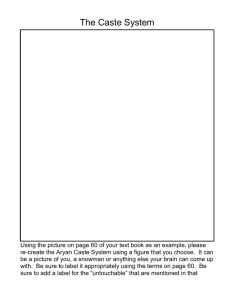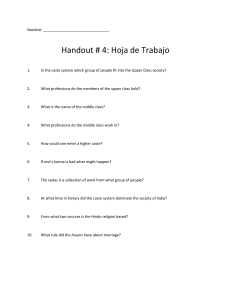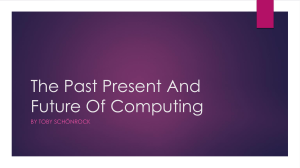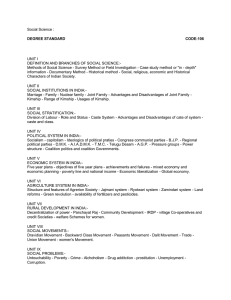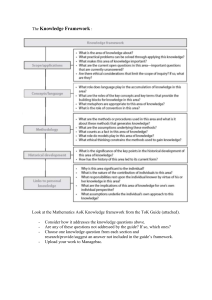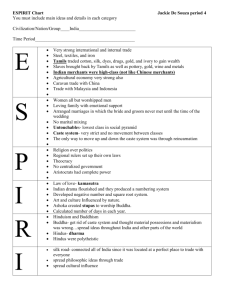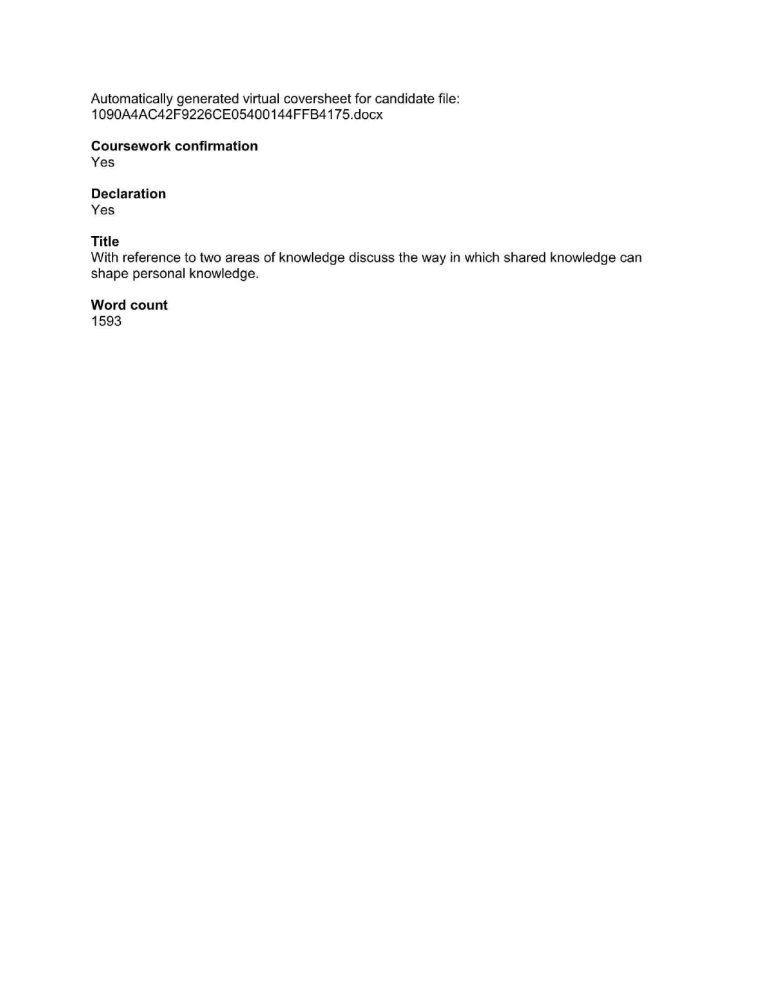
With reference to two areas of knowledge discuss the way in which shared knowledge can shape personal knowledge. Caste system is part of Hindu religion. Whenever I visit my grandparents, I see that they treat the cleaners as untouchables, as they are supposed to be in lowest strata of the caste system. To this day, if someone is born an untouchable in the caste system, that person will be treated as inferior in status. The caste system is set of beliefs, which have been shared over thousands of years and can be placed in the realm of shared knowledge, which is still shaping the personal knowledge of many Hindus in India. The effect of the caste system makes me wonder, in how many ways can the shared knowledge affect the personal knowledge of a person. Knowledge1 is a justified, true belief shared and acquired by ways of knowing like reason, intuition, language, emotion, and faith. Shared knowledge is highly structured, is systematic in its nature and the product of more than one individual. Personal knowledge is gained through experience, practice and personal involvement. Keeping the caste system in mind, I wonder exactly how does shared knowledge shape personal knowledge. This leads us to the knowledge issue, to what extent does shared knowledge shape personal knowledge. The two areas of knowledge in which this will be discussed are Mathematics and Human Sciences. In mathematics, shared knowledge is the theorems, concepts, and theories that have been published. I take Math Higher Level, and I have always wondered what influences mathematicians when they develop their ideas. Even though mathematics is confined by mathematical logic, it is still immensely creative, and requires its practitioners to have colossal imagination and intuition. These are some of the most dominant ways of knowing in mathematics. In mathematics, shared knowledge can shape personal knowledge. Sometimes a person's imagination can be inspired by another mathematician's work. This can be best described by the example of Alan Turing2. Turing was a British mathematician called by the British Government to help them crack the German cryptosystem called Enigma during the World War 2. Enigma was very intricate, and it changed its way of encrypting words every day. The British Government wanted Turing and several other mathematicians to find out the pattern as soon as they could, and try decrypting as many messages as possible. Alan Turing knew that he could crack Enigma by making a machine. His idea was based on a machine prepared by Polish mathematician named Marian Rejewski. He imagined the improvements he could make to Rejewski's machine and knew he could crack Enigma with it. Eventually he turned that idea into reality, and broke the 1 "Knowledge in TOK" Theory of Knowledge Guide. January 1, 201. Accessed February 7, 2015. https: //ibpubl ishi ng. ibo.org/exist/rest/app/tsm.xql?doc=d_O_tok_gui_l 304_1_e&part= 2&chapter=1. 2 "Bombe." Bombe. Accessed February 7, 2015. http://www.cryptomuseum.com/cryptofbombe/.
